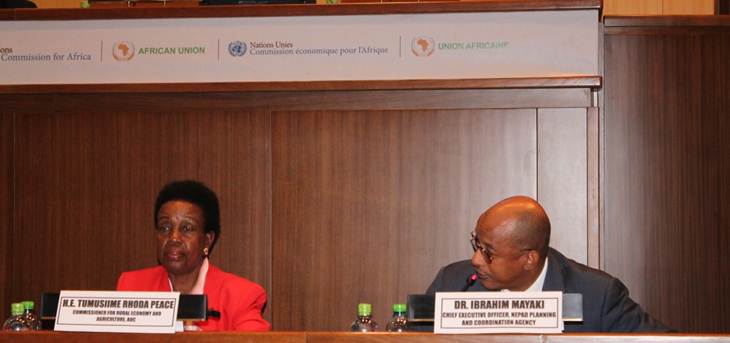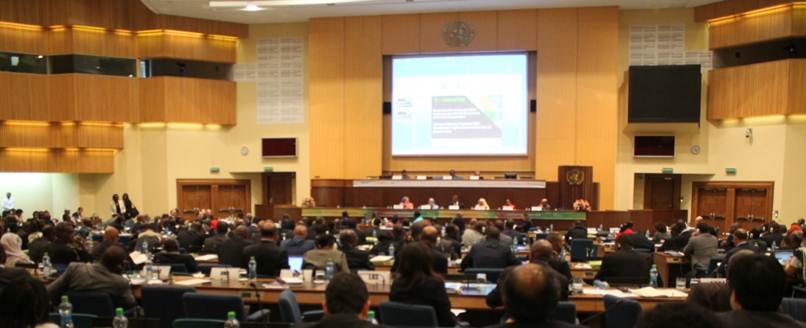Agenda 2063 builds on existing AU Frameworks

NEPAD Agency CEO Dr Ibrahim Mayaki has underscored the need to harmonise existing African Union frameworks and programmes with Agenda 2063 in order to fast-track its implementation.
The CEO addressed yesterday African Ministers in charge of finance, monetary affairs, economic planning and integration, UN Agencies, as well as the private sector, development partners and academia in Ethiopia’s capital Addis Ababa.
They are meeting from March 28 to 29 to chart the way forward for strategies on domesticating and financing Agenda 2063’s priority projects and to input into its 10 Year Implementation Plan.
Dr Mayaki highlighted the need to translate Agenda 2063 at the regional and national level through the roll-out of African Union endorsed development programmes.
One flagship programme of Agenda 2063, according to Dr Nkosazana Dlamini-Zuma, Chairperson of the African Union Commission, is to accelerate the implementation of NEPAD’s Programme for Infrastructure Development in Africa (PIDA) for the improved movement of goods and people, she said during the opening ceremony of the Conference hosted by the Economic Commission for Africa (ECA) and African Union Commission (AUC).

High-level panel: (l-r) UN Secretary Special Adviser Amina Mohammed, AUC Commissioner Dr Elham Ibrahim, Moderator Amadou Ba, AUC Commissioner Rhoda Peace Tumusiime and NEPAD CEO Dr Mayaki
“Decisive steps should be taken to sow the seeds of the continental free trade area as an essential pillar of Africa’s structural transformation,” Executive Secretary of the Economic Commission for Africa, Dr Carlos Lopes said. He urged all present to develop practical solutions until they meet again in July 2015 in Addis Ababa, for the Third International Conference on Financing for Development.

The AU’s Agenda 2063 highlights a set of aspirations within the next five decades with priority projects that are sought to accelerate the implementation of its vision for an integrated, prosperous and peaceful Africa, driven by its own citizens. The strategy takes a people-centred approach which requires investments in human capital as a key priority in areas such as agriculture, health, education, nutrition, water and sanitation.

How to track progress in the implementation of Agenda 2063 was tackled by Mrs Rhoda Peace Tumusiime, AUC Commissioner for Rural Economy and Agriculture, who mentioned the Results-Framework of NEPAD’s Comprehensive African Agriculture Development Programme (CAADP) as an effective monitoring and evaluation tool.
Solutions for the financing of Agenda 2063 were also a top priority during the Conference in which the need for increased domestic resource mobilisation, through improved tax reforms, tax collection and a stop of Illicit Financial Flows (IFD) were identified, amongst other issues.
The outcomes of the deliberations will feedback into the 10 Year Implementation Plan which is expected to be adopted at the next AU Summit in June 2015 in South Africa.
